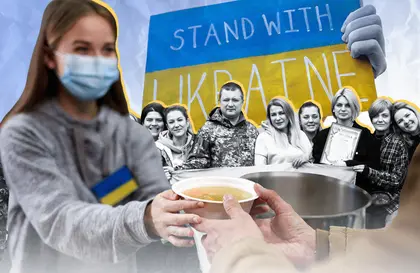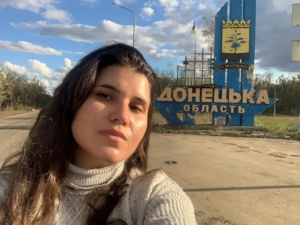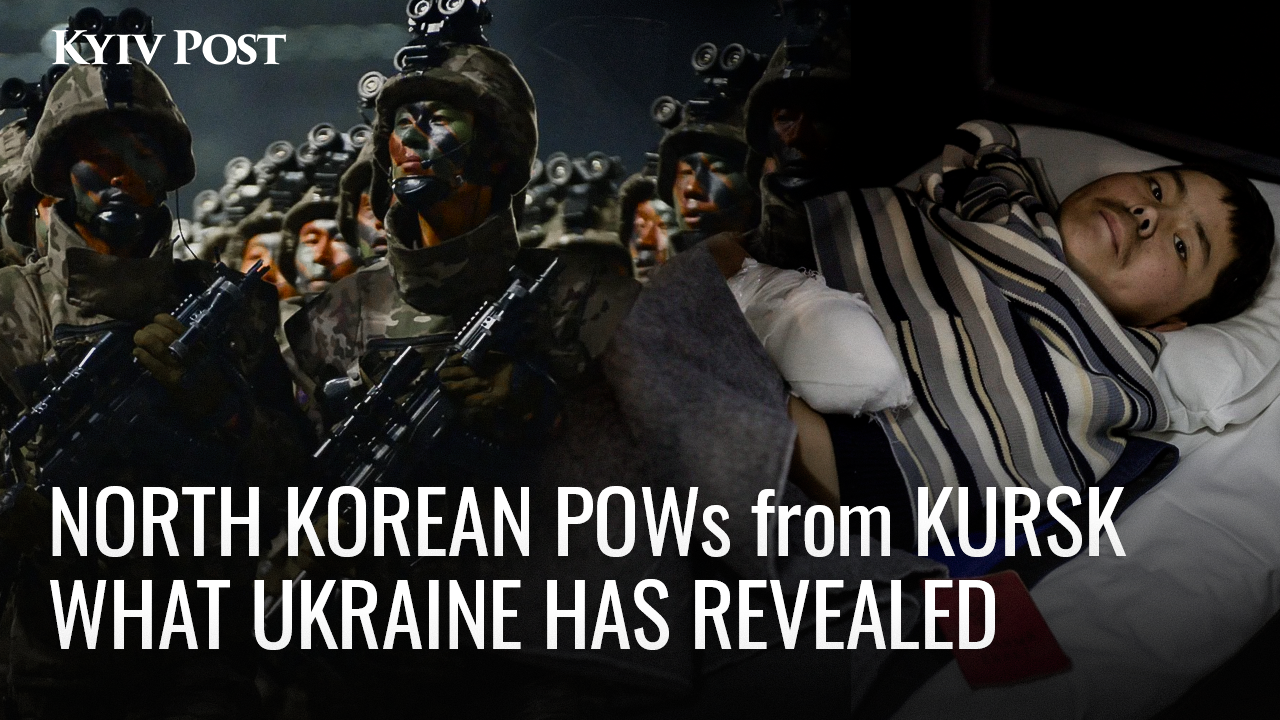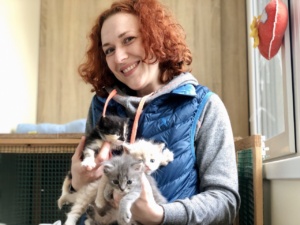On Dec. 5, the world celebrates International Volunteer Day, giving thanks to people whom, at the expense of their own time and money, help those in need.
The number of global volunteers is increasing year-on-year. In Ukraine, the volunteer movement has also been expanding, with the war prompting many people to get involved, help the Ukrainian Armed Forces (UAF), provide humanitarian support to people young and old, and play their part to protect animals and the natural environment.
- Find the most current war in ukraine update in the Kyiv Post’s daily news reports published today.
JOIN US ON TELEGRAM
Follow our coverage of the war on the @Kyivpost_official.
Kyiv Post has collected many stories of those who sacrifice themselves every day and have no regrets in their choice to be volunteers. Here are three case studies.
Anastasia Rokytna, VATRA
“As a volunteer, I am inspired by the military”
When did you become a volunteer? We started our volunteering work three years ago and I personally became a war volunteer because it just felt necessary, now more than ever. We have visited orphanages, military hospitals and brought food to soldiers. Since Feb. 24 [the first day of Russia’s full-scale invasion of Ukraine] we have been working hard, responding to requests from the fighters and delivering aid.
What does volunteering mean to you? Volunteering is a way of life and comes from a feeling inside that you want to help. It often means ignoring your own needs to meet the needs of others and sharing a sense of inner love and warmth. Those qualities are important or else it can be difficult because you don’t understand why you do it. Volunteering is therefore about the inner self. Personally, as a volunteer, I am inspired by Ukraine’s fighters. When I see the conditions that they live in, I want to work even harder to help them.
What difficulties do you face? The biggest difficulties in the work of a war volunteer are shelling and mines. War in itself is an obstacle. The problem is that – over time – people get used to war and become less active in donating. As a volunteer, you have to think how to capture people’s interest and inspire them to provide monetary support to help the military.
How do you avoid burnout as a volunteer? Emotional burnout is a fairly common story, so balance is important. At the beginning of the war, we had a lot of requests and a lot of work. You can find yourself working all the time and sometimes it can be hard to stop. When you take a day off, requests can still come in because not everyone knows that you have a day off. I’m glad when our volunteers find time to rest or just take some days off. Everyone should have time to recharge.
What inspires you? The best thing is when the military thanks you. They always find the energy to support us as well. So, in that sense, volunteers and the military provide are mutually supportive. We feel the need for each other and there is mutual love. Of course, there can be negative moments. It’s often simply due to burnout as people get tired. But we are all part of the same effort and should support one other, not look for trouble.
Yuriy Lifanse, Community of Sant’Egidio
“It’s nice when you succeed in improving someone’s situation”
When did you become a volunteer? Our community team met for the first time on Dec. 1, 1991 – the day when a referendum on Ukraine’s independence was held. Since then, we have been reading the Gospel and helping the homeless and poor people.
What does volunteering mean to you? I do not call myself a volunteer, I try to be a Christian. But volunteering is, first and foremost, selfless work: you work, but you don’t get paid for it. Therefore, when people ask me what I do, I answer – in my spare time, I teach Italian (laughs).
When you help others, you discover the meaning of life and freedom. Helping the poorest is the greatest freedom because, when supporting them, you communicate directly with so many different types of people – from the homeless to ministers and mayors. You do the seemingly impossible.
It’s a particular pleasure when the results of your hard work pay off. For decades, we have been fighting for heating points across the country for the poor and homeless, and now we have “Points of Invincibility” [makeshift centers offering a refuge from power outages and food shortages]. Perhaps our work has helped to shape what these places should look like.
What difficulties do you face? The war means we often work outside our cities. On Feb. 28 we came together in Kyiv to give free food to the homeless. During gaps between air raid warnings, we called people and invited them to come and take the aid. This created unforgettable impressions.
Now, many homeless people have been evacuated to shelters for refugees. However, elderly people who have fallen into poverty often come to us to get free food.
How do you avoid burnout as a volunteer? It’s important to have a lot of friends who can help and support you. That’s probably the most important thing.
What inspires you? People who approach us for help are like everyone else. There are some who are grateful and others who are ungrateful. The best thing is when you manage to change someone’s situation so that they no longer need your help, but instead want to help others.
Valeriia Zhukova, Soft Paws
“It’s easier for me to buy feed for animals than to spend money on myself”
When did you become a volunteer? It began when my husband and I started feeding cats in the street. It wasn’t a large-scale activity: we didn’t take animals home and didn’t look for homes for them. Later, my friend Natalya and I created the Soft Paws group on Facebook, which has now been running for more than three years.
What does volunteering mean to you? Natalya and I are volunteers out of the goodness of our hearts. We just cannot pass a sick or hungry animal. We feed cats and dogs every day.
I believe that every person is able to do this. Even if you cannot keep an animal in need, at least don’t pass it by – take it to a clinic or write a post and ask for help. Not everyone wants to do this because they think they can pass the buck. We are probably the people expected to take responsibility for that (laughs).
We feed, heal, spend time with and try to find a home for animals at our own expense. We have no regrets in doing what we do. It’s much easier for me to buy feed for animals than to spend money on myself.
What difficulties do you face? We often face difficulties taking care of the animals until we can find a home for them. We keep most of them at home to keep them off the streets. If there is a sick cat, it should be kept separately. But if I already have seven cats at home, then there is no sense in keeping them separate. Therefore, providing help through temporary care is the most important thing.
We face a lot of difficulties with money because we spend a great deal on treatment and some medicines are expensive – they can cost up to $100. That’s why we call on people in our Facebook group to help.
When the war started, many people who evacuated left their animals. At the beginning of March, I kept 31 kittens at home. So, the amount of work increased but the number of those willing to lend a hand did not.
How do you avoid burnout as a volunteer? Sometimes it can be a quiet week – no one takes animals home. You almost give up and want to cry. And other times, almost all the cats are taken. In April, someone even took an adult cat from me. I didn’t expect it – I was happy.
If it becomes difficult, then the first thing you need to do is cry and then it gets easier. After that, you calm down and get a grip of yourself. Natalya and I talk regularly and support one other – things are getting easier for us.
What inspires you? Seeing photos of the happy lives of our kitties who have found a new home.
You can also highlight the text and press Ctrl + Enter









